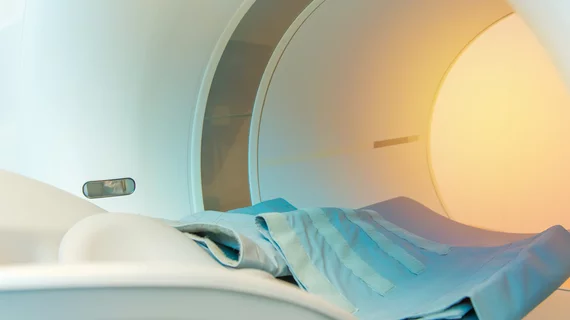Low-dose radiation exposure from imaging exams associated with increased cancer risk
Being exposed to low-dose ionizing radiation is associated with an increase in pediatric patients' risk of developing cancer, according to a new study published in JAMA Network Open. This, the authors argued, is why imaging should only occur in appropriate situations.
“Diagnostic low-dose ionizing radiation has great medical benefits; however, its widespread use has also raised concerns about adverse effects of radiation,” wrote Jae-Young Hong, MD, PhD, Korea University in Seoul, and colleagues. “The largest concern with ionizing radiation is increased cancer risk, particularly after childhood exposures. The biological hazards of ionizing radiation have been well documented since the atomic bomb explosions in Hiroshima, Japan, and Nagasaki, Japan, which caused a high incidence of atomic bomb–induced health issues, including various types of cancer.”
The team’s research included data from more than 12 million patients, 19 years old and younger—52.5% of the patients were male. To be counted as part of the study, the low-dose exposure had to take place from 2006 to 2015 and be at least two years before any cancer diagnosis occurred.
Overall, 10.6% of patients included in the study were exposed to low-dose ionizing radiation. Of that group, 14% underwent more than one scan.
Among the full study population, more than 21,000 cancers were recorded by the end of 2015. More than 14,000 of those cancers were detected in the patients exposed to low-dose ionizing radiation.
“The overall cancer incidence was greater for exposed individuals than it was for nonexposed individuals after adjusting for age and sex,” the authors wrote.
Also, CT scans in particular were associated with an increase in cancer incidence. And when looking specifically at lymphoid and hematopoietic cancers, the overall cancer incidence increased the most for myeloid leukemias and myelodysplasia. Focusing in on solid cancers, the overall cancer incidence increased the most for breast and thyroid cancers.
“Our study found an association of increased cancer incidence with exposure to ionizing radiation and with exposure to CT scans,” the authors wrote. “Therefore, our findings raise concerns regarding the use and subsequent risks of diagnostic low-dose ionizing radiation exposure in youths.”
However, the team added, this is not to say medical imaging should be avoided when necessary.
“Provided that imaging is clinically justified, it might be appropriate in a younger patient who needs correct diagnosis,” Hong et al. wrote.
The authors concluded that their findings “suggest that there is incentive to limit radiation doses to as low as reasonably achievable and to only scan when justified.”

